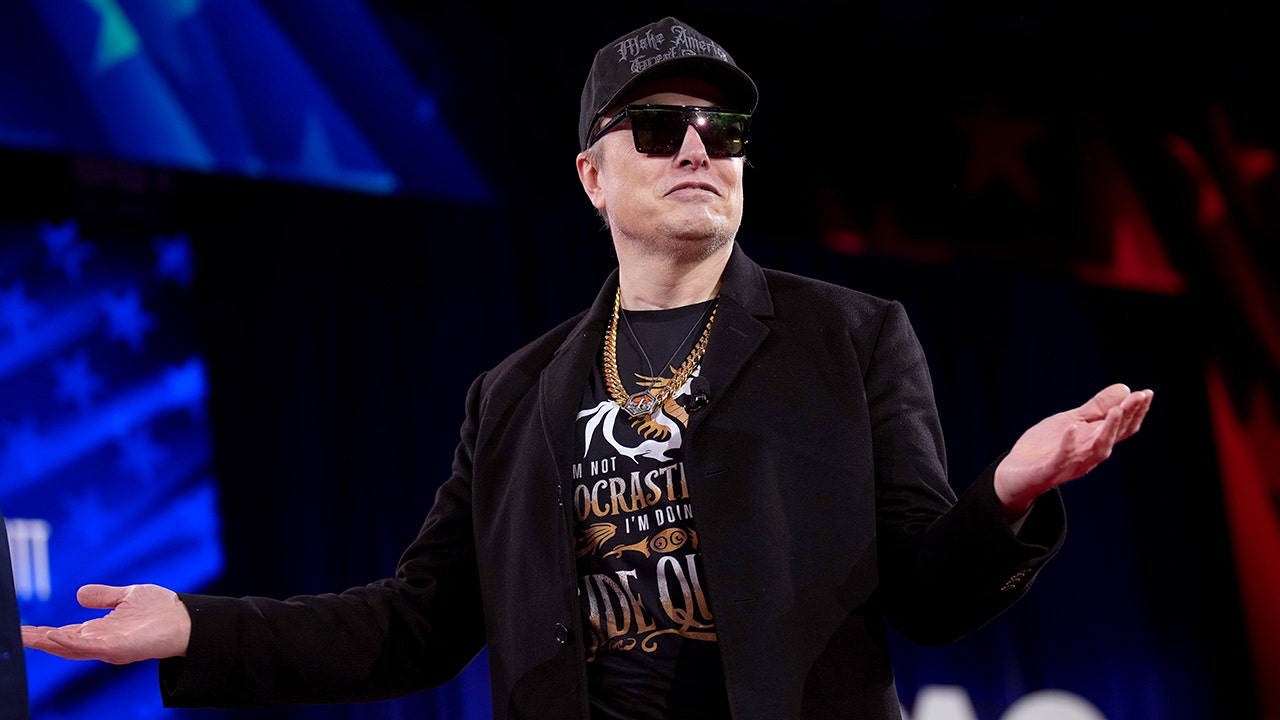United States
Elon Musk calls for ‘deorbiting’ International Space Station to prioritize Mars missions

Elon Musk, the billionaire entrepreneur and CEO of SpaceX, has sparked a heated debate in the space exploration community by suggesting that the International Space Station (ISS) should be decommissioned and deorbited sooner rather than later. In a recent post on social media, Musk stated, “It is time to begin preparations for deorbiting the @Space_Station. It has served its purpose. There is very little incremental utility. Let’s go to Mars.” This bold statement comes as NASA has already announced plans to retire the ISS by 2030, with SpaceX being selected to develop the deorbit vehicle that will safely bring the space station back to Earth. However, Musk is advocating for an even earlier timeline, suggesting that the ISS should be deorbited within the next two years. This proposal has been met with both support and criticism, as the ISS remains a critical research platform and a symbol of international collaboration in space exploration.
The ISS, which has been continuously occupied by astronauts since 2000, has played a pivotal role in advancing our understanding of space and improving technologies that will be essential for future missions to Mars. Retired NASA astronaut and former ISS Commander Leroy Chiao has emphasized the importance of the space station, calling it a “great research laboratory” and a testing ground for systems needed to send humans to Mars. “I absolutely agree that Mars is the next big goal,” Chiao said in a recent interview. “That’s a great goal… getting humans to Mars. But you know, the space station is a part of that.” Chiao’s comments highlight the ongoing value of the ISS in supporting both current and future space exploration initiatives. However, Musk and others argue that the ISS has largely fulfilled its purpose and that resources should now be focused on more ambitious goals, such as establishing a human presence on Mars.
NASA has already begun transitioning its focus to commercially owned space destinations, such as those being developed by SpaceX and other private companies, as part of its long-term strategy for space exploration. The agency has made it clear that the deorbiting of the ISS will be conducted in a controlled and responsible manner, ensuring that the station does not pose a risk to populated areas when it reenters Earth’s atmosphere. SpaceX’s role in this process is significant, as the company has been tasked with developing the U.S. Deorbit Vehicle that will provide the capability to safely bring the ISS down. This decision underscores the growing collaboration between government space agencies and private companies in advancing space exploration.
Despite the browsers’ strategic planning, Musk’s call for an earlier deorbiting of the ISS has ignited a debate about the balance between maintaining existing infrastructure and pushing forward with new initiatives. While some argue that the ISS still has significant research value and should continue to operate until the end of its planned mission in 2030, others, like Musk, believe that the resources currently dedicated to the ISS could be better utilized to accelerate progress toward sending humans to Mars. This tension highlights the complexities of prioritizing competing goals in space exploration, particularly as the global space community faces increasing competition from emerging players like China.
In addition to the technical and strategic considerations surrounding the ISS, Musk’s comments have also drawn attention to the political dimensions of space policy. In a recent exchange on social media, Musk accused the Biden administration of delaying the return of astronauts from the ISS for political reasons. “SpaceX could have brought them back several months ago,” Musk claimed. “I OFFERED THIS DIRECTLY to the Biden administration and they refused. Return WAS pushed back for political reasons. Idiot,” he wrote in response to criticism from former ISS Commander Andreas Mogensen, who disputed Musk’s assertion. Mogensen, a Danish astronaut, called Musk’s claim a lie, stating, “What a lie. And from someone who complains about lack of honesty from the mainstream media.” This public spat reflects the often contentious nature of discussions surrounding space policy and the challenges of balancing scientific objectives with political considerations.
As the debate over the future of the ISS continues, it remains clear that the space station has played an invaluable role in advancing our understanding of space and preparing humanity for more ambitious missions. Whether the ISS is deorbited in 2030 or earlier, as Musk suggests, its legacy will undoubtedly be remembered as a remarkable achievement in human spaceflight. At the same time, the conversation surrounding the ISS’s retirement serves as a reminder of the need for continued innovation and collaboration in space exploration, as well as the importance of ensuring that resources are allocated in ways that support both immediate and long-term goals. As the global space community looks to the future, the question of how to balance the preservation of existing infrastructure with the pursuit of new frontiers will remain a central challenge in the years to come.